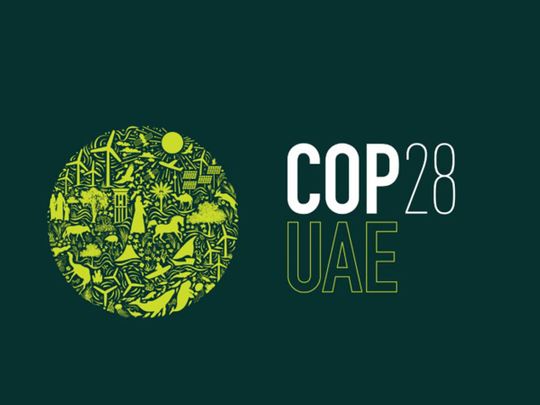
As the world remains focused on hostilities in Gaza, the 28th meeting of the Conference of Parties on Climate Change — COP28 — is an important reminder that cooperation is the only means to mitigate human-caused calamity.
There’s some commentary surrounding the fact that a fossil fuel producer — the United Arab Emirates — is hosting COP28. But in reality, the UAE, a capital-rich and multi-aligned middle power, has the credentials to bridge the climate change gap between the developed and developing world.
Gulf Cooperation Council (GCC) countries manage some $4 trillion in assets through their sovereign wealth funds. This capital, together with technological prowess, could be crucial to achieving the expectations of the “loss and damage fund,” which was established after COP27 to assist “developing countries that are particularly vulnerable to the adverse effects of climate change.”
So far, COP27’s ambition hasn’t borne fruit. A plan to raise $100 billion a year to help poor countries address climate change, funding that was scheduled to begin flowing in 2020, has met with little success. The delay is certain to be a point of contention between donors and potential beneficiaries at COP28.
More than a gathering
This year’s climate talks are more than a gathering for environmental groups. They hold paramount importance for Middle Eastern countries, especially oil-producing states. For these nations, the fallout from climate change extends beyond economic considerations and energy export potential, deeply affecting the lives and livelihoods in vital sectors like agriculture, water, and electricity.
Climate change is already affecting stability across the Middle East. In Libya, after a decade-long civil war, signs of recovery — increased oil production, for instance — were upended in September 2023 when a catastrophic cyclone submerged parts of the country, disrupting crucial seaports and jeopardising oil exports.
Similarly, in Iraq, government inadequacies in responding to floods have led to substantial casualties and ignited violence.
Even the outbreak of Syria’s civil war in 2011 was linked to a climatic disaster. The worst drought in nearly a millennium the year before devastated the livelihoods of 800,000 people and decimated the farming sector, fuelling urban migration and unrest.
The climate crisis has now become a leading concern in a region traditionally fraught with security challenges. Effects of climate change ignite violence, fuel poverty and inequality, and encourage migration, exacerbating regional instability. Food and water scarcity, high birth rates and consumption, relocation from hot zones, and threats to an agriculture sector employing a substantial portion of the population underscore the monumental challenges posed by the climate crisis.
Regiona, global stability
This upheaval threatens not just regional stability but global stability as well.
Despite historical and ongoing animosities, Middle Eastern nations must recognise and lead efforts against the shared threat of climate change. There is significant potential for regional cooperation in knowledge sharing, disaster response strategies, and investment in renewable energy sources.
Cooperation on climate mitigation and adaptation could also help reduce tensions between superpowers. In their long-anticipated meeting in San Francisco, US President Joe Biden and his Chinese counterpart, Xi Jinping, agreed to resume a working group on climate cooperation and pledged a major ramp-up of renewable energy.
The two sides also agreed to “accelerate renewable energy deployment” in their economies until the end of 2030 to speed up “the substitution for coal, oil, and gas.” They also pledged to support efforts to “triple renewable energy capacity globally by 2030.”
The stakes at home are even higher, as cooperation on climate change and sustainability can help fight extremism and strengthen regional stability. The UAE’s growing engagement in climate mitigation in Africa exemplifies this.
At the recent Africa Climate Summit, the UAE pledged $4.5 billion to expedite clean energy projects on the continent. Given the political upheaval and conflicts in many Muslim-majority countries in Africa, the UAE, as a proponent of moderate Islam, could play a pivotal role as a mediator and catalyst for change.
UAE — a champion of stability
The UAE is in a strong position to prevent potential crises and champion stability, facilitating Africa’s sustainable growth.
With the Israel-Hamas war in Gaza still raging, the UAE has announced that it will establish three desalination plants in the Gaza Strip, producing 600,000 gallons of drinking water a day, benefiting 300,000 people. Pledges like these are a reminder that beneath the carnage remain enduring challenges of water and food security, concerns that only can be addressed with long-term solutions.
COP28 conference — that starts today — represents an urgent call to the international community to join forces in addressing converging threats. We must remember that stability and peace will require regional and trans-regional cooperation, even among foes. Our future hinges not just on the integrity of our borders but on the health of our shared planet.
For lasting peace and security, all parties must prioritise cooperation over conflict, move beyond ideological and political divisions, and recognise our collective existence on an increasingly endangered planet. — Syndication Bureau
Gedaliah Afterman is head of the Asia Policy Program, Abba Eban Institute for Diplomacy and Foreign Relations, at Reichman University. Narayanappa Janardhan is director of research and analysis at the Anwar Gargash Diplomatic Academy in Abu Dhabi. Mohammed Baharoon is director-general of B’huth, the Dubai Public Policy Research Center.








